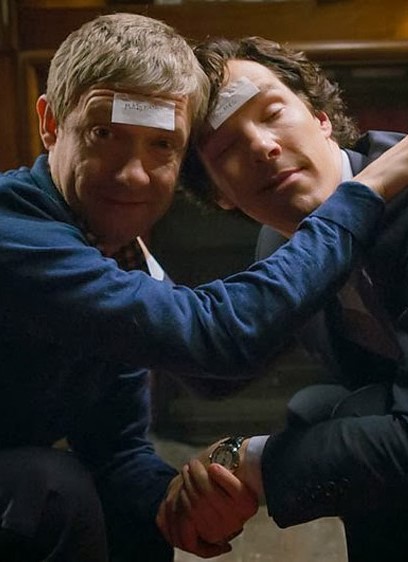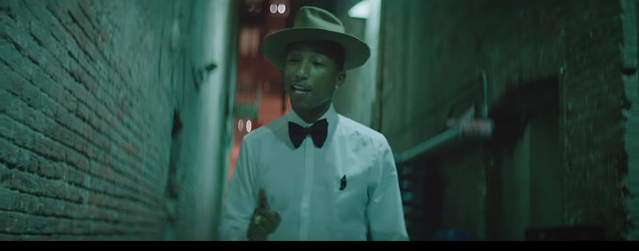
Your prose does more than simply describe what happens. It creates the experience in the reader’s mind – the atmosphere, the themes, the lighting, the mood. Imagine the book has a soundtrack, like a movie. In fact it does, because the ‘music’ is created by the shape of the words and the images they conjure. A writer’s distinctive style is often called their ‘voice’, and that voice speaks the book inside the reader’s mind. So we have to be very deliberate with every word.
But quite often, writers don’t realise they’re actually sabotaging their narrative by inappropriate word choices.
To hone your awareness, try this exercise
Pick a simple scenario. Let’s have a character waking up in the morning, climbing out of bed, putting on a dressing gown (or, if you prefer, a suit of armour). Write it in your normal voice. Don’t put on a character. Just imagine it’s you, being natural, explaining to a friend.
Now write it again – as a character with a skippy song in their heart. Infuse the text with vigour, optimism and joie de vivre. Smile at your screen. Don your headphones, dial up Pharrell … okay, that might be too much for some of you.
Now go to the dark side. Describe exactly the same sequence, but make it tense. Foreboding. This is someone who wakes up and doesn’t know where they are. Or has been startled out of sleep by a sudden sound. For this I recommend Yellow Magic Orchestra’s Loom, which appropriately for our setting has a picture of the morning tooth routine.
Many voices
Do you see how different they all are? Notice particularly where your natural voice falls on the spectrum of mood. Is that the tone you use in the narrative parts of your novel? Does it fit the material?
Of course, the examples I’ve made you write are extremes, but they demonstrate what a difference your narration makes to the atmosphere – and how you can change it.
Here’s the rub. Writers often use their ‘normal’ voice in the narrative parts of their novel, as though they were explaining to a friend, perhaps over coffee or wine. Without realising it, they’re being flippant, raconteurish or breezy. Their main character is being interrogated by the police? He’s ‘squirming’ in his chair. A cherished ornament is knocked off mantelpiece? It ‘topples and bounces’ to the floor. A character is in intensive care? They’re ‘encumbered’ with tubes. A character’s lover is shot by the police? Their blood ‘splatters everywhere’. It’s all rather jolly. They’ve got Pharrell in their hearts when they might be better with a gulp of YMO.
A tip
If you find it tricky to establish an appropriate tone for a serious scene, try drafting it in first person to get the mindset. Then switch back to general narration once you’ve established the mood and perspective.
But what about humour?
Of course, even the darkest stories need humour. Humour is part of life. But it’s better done through the characters – their thoughts, actions, quips, the ironies of their behaviour. It shouldn’t look as though the neutral narrative is telling the reader to find the situation humorous. If you describe a cop as ‘huffing and puffing’ as he chases a suspect, you’ve introduced levity. Is that appropriate to the action or would you be better to say his lungs were raw but he wouldn’t give up?
Let’s stay with ‘huffing and puffing’. If a humorous remark is made through the filter of a character, it’s entirely different.
Indeed, the humour can add an interesting layer. John le Carre uses this in The Night Manager. In one scene, the agent handler, Burr, has tapped the phone of his agent, Jonathan Pine. As Burr eavesdrops, he hears Pine get a call from the villain’s girlfriend.
Jonathan at first furious … but then less furious. And finally, if Burr read the music right, not furious at all. So that finally… it’s nothing but Jonathan … Jonathan … Jonathan … and a lot of huffing and puffing…’
Yes, this description is humorous, embarrassed, dismissive – but it’s in the mind of Burr. It doesn’t defuse the tension or make the incident trivial because it’s coloured by Burr’s feelings. Indeed, it shows his exasperation, his horror and disbelief that his agent is putting everything in jeopardy by having a liaison with the villain’s woman. (More here about the prose of The Night Manager.)
Your prose makes the environment
The prose is like a soundtrack for a movie, the lighting, the mood. Your natural outlook, your raconteur voice, may not be right for your fiction.
Main pic courtesy BBC
Is there a writer whose narrative voice you particularly admire for evoking atmosphere? Have you had to consciously modify your writing voice to suit your material? Even, have you altered your chosen genre because you discovered your voice suits it better? Let’s discuss!

 Psst… Lots of info on fine-tuning your story in my books on plot and character
Psst… Lots of info on fine-tuning your story in my books on plot and character



Very useful!!
Thanks, Traci!
I learned early on not to inject my natural ‘voice’ into the prose because…I come across as a school marm. 😦
Instead I use a three tiered version of close third. Everything is seen from the pov of the particular character but in varying degrees. First tier is very close and directly reflects the thoughts and feelings of the character in question. Second tier is indirect but still infused with the ‘personality’ of the character, while third is a neutral kind of narration for things that affect the character and need to be explained but do not have an emotional element attached to them – e.g. a chair, a medical procedure etc.
When I get it right, I can keep the school marm out of the story entirely. When I get it wrong…that’s what re-writes are for.
Ho ho, Andrea – I’m chuckling at the idea of your schoolmarm voice! Your tiers sound like a good way of handling the various needs of the story – thanks for explaining!
“My pleasure, young Ms Morris.” -cough-
I’m with Andrea. I use first person and close third for my writing to keep the story intimate. Writing from the perspective of a particular character strongly influences the wording of the narrative.
However, I’m a fantasy writer, and omniscient seems to be a popular POV for my genre. I’m planning to experiment with some omniscient short stories this year to see how I like it. My thinking is that the narrator will have a distinct voice and perspective of its own, perhaps like the narrative portions of the story are being told in retrospective by an old friend of the main character. Does that make sense? I’m hoping that approach will make the narrative more consistent and engaging than omniscient usually is (for me).
Hello Daniel! Yes, with the vast casts and epic sweep of fantasy, omniscient offers the most options. First person can be too limiting. Close third lets you add a few more minds to the mix, but still imposes limits. Good luck with the experiment.
I strongly recommend reading Bleak House. Dickens alternates between several different narrative voices, from omniscient to close.
I was talking to an editing client about this the other day! Bleak House also has a thread in first person. It’s like having all the camera angles, from ultra close to godlike distance.
Doesn’t it really come down to knowing your characters and having a soul that hears? Of course, you could fake it…
‘A soul that hears’ … aka ‘feel’, ‘instinct’… I don’d disagree, Willy. But sometimes I find that writers need a gentle nudge. Once nudged, they may not need to be told again.
Reblogged this on Notes from An Alien and commented:
Today’s re-blog has Roz Morris expanding on “The prose is like a soundtrack for a movie, the lighting, the mood.”